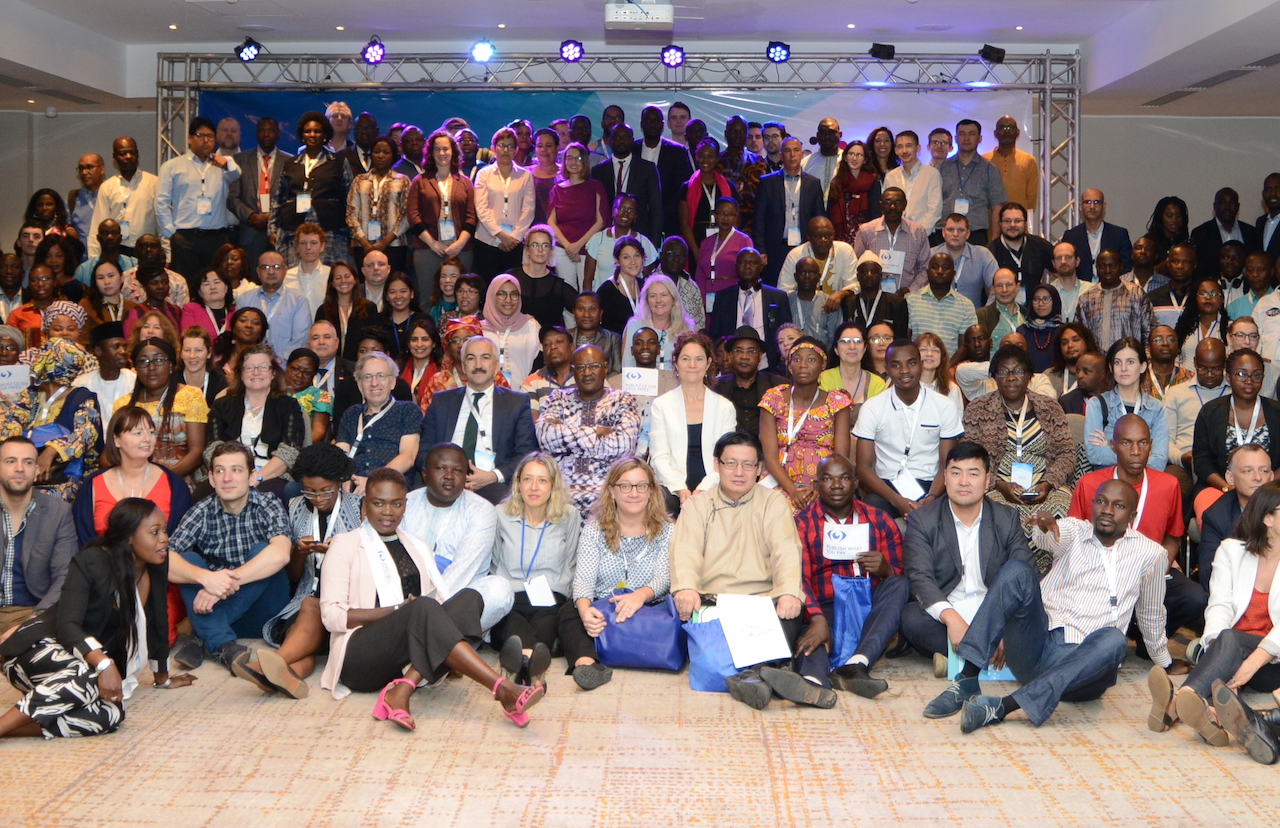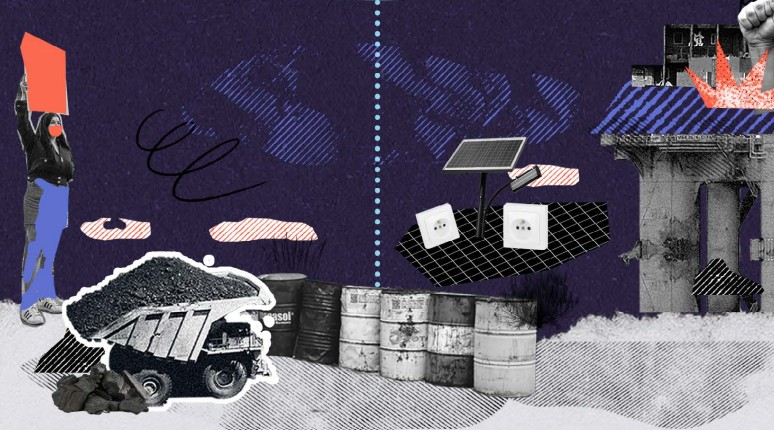Feedback from the National Coordinators Survey 2021
In 2020, Publish What You Pay (PWYP) national coalitions have been under significant strain as a result of COVID-19, facing funding squeezes, crackdowns on civic space and capacity contractions. Yet despite these serious constraints, they have continued to achieve important advocacy impacts and progress towards the collective PWYP strategy to be informed, influential, heard, and connected. Those crucial insights, collected in the National Coordinators survey, help us measure progress against our goals, and enable us to see where and how to adapt and tailor our strategies.
Creating a shared understanding of challenges and impacts
At the PWYP International Secretariat, we aim to strengthen both our own and PWYP members’ efforts to monitor, evaluate and learn from our work. The annual National Coordinators survey contributes to a shared understanding of both the challenges faced by members and the impacts of their advocacy efforts, and it strengthens our ability to articulate progress as a collective.
The 2021 survey was conducted in April, and asked National Coordinators about their coalition’s activities and outcomes in the preceding year – the first full year of our collective 2020-2025 Strategy. Forty-four out of 51 National Coordinators responded. A similar survey had been commissioned in early 2020, allowing a year-on-year results comparison.
Our first year has not been an easy one. Thirty-seven National Coordinators reported that their coalition’s ability to advocate had been affected by COVID-19, with impacts ranging from a reduced ability to convene members and communities, to the use of the pandemic by governments to further restrict civic space. Some coordinators reported the suspension of accountability processes. Exhaustion among members has also been reported. Coordinators faced double constrictions where face-to-face meetings were outlawed while weak communications infrastructure prevented virtual convening.
PWYP’s wins in 2020 despite COVID-19
Despite these challenges, most National Coordinators also report that their coalitions continued to advocate in an adapted form, with 37 saying that their coalition had an impact in 2020. National Coordinators cited over 40 examples of advocacy impacts relating to improving governance, system changes and securing new disclosures. The survey enables us to get a snapshot of these impacts across the network while we look to other learning processes to understand in more depth about how our advocacy wins are leading to better accountability and positive outcomes for citizens.
Impressively, despite restrictions, National Coalitions were able to make particular progress towards the strategic objective of enabling communities and excluded groups to have better access to decision-making, reporting 32 examples of progress towards strengthening this type of access.
Examples range from the coalition in Togo where PWYP members enabled communities to cite regulations that had been violated; to Madagascar, where communities were enabled to demand accountability from companies for pollution caused by mining. Congolese women were empowered to take part in budget monitoring, resulting in the identification of corruption at local level; while Indonesian communities were equipped to monitor and report deforestation from mining in protected areas. Women and young people in Iraq were able to participate in advocacy and public discussions on extractive governance for the first time.
An increasingly connected PWYP network
COVID-19 didn’t halt PWYP’s collective strategic ambition to become more connected, with progress being made by coalitions to integrate their work with sister coalitions through joint advocacy plans and actions, and with more National Coordinators saying that their coalition had taken a different approach after being inspired by other PWYP coalitions.
National Coordinator feedback suggests that International Secretariat-facilitated efforts contributed to this connectivity, through joint funded projects, regional coordination and by facilitating information-sharing through webinars, which complemented the significant efforts of the National Coordinators’ to link-up and innovate.
Examples include coalitions in MENA sharing knowledge which resulted in new approaches to contract transparency; East African exchanges about EITI strategies and fiscal regimes through regional meetings and Indabas; and funded projects in Francophone West Africa resulted in joint advocacy actions by PWYP coalitions to advance gender equality and women’s rights through EITI implementation.
Coalitions also took the initiative to create trans-regional links: for example, Zimbabwe and Canada collaborated to build community capacity on project level data, while PWYP-US helped other coalitions to advocate for transparency directives at European Union level. PWYP members in Kazakhstan, France and the UK collaborated on an analysis of the costs and benefits of extraction to Kazakhstanis, triggering national debates.
Threats to civic space and need for capacity building
Alongside progress, the survey also revealed network vulnerabilities. More National Coordinators reported threats to the civic space and human rights of members than they did in the 2020 survey. Big gaps remain in coalitions’ knowledge about how to defend against attacks on rights and space. While slightly more National Coordinators reported Secretariat efforts to fill these knowledge gaps, we know there is still a long way to go. In 2021, PWYP has been working with AEDH (Association Européenne pour la défense des Droits de l’Homme) to support a training of trainers programme for PWYP members in Francophone Africa, where members operate in some of the most high-risk countries according to the CIVICUS barometer. While the epidemic is negatively impacting this work, we are committed to supporting PWYP members to be able to better respond to threats, especially in online spaces, as part of our civic space strategy.
National Coordinators also reported advocacy capacity needs alongside more general needs. Most of them said that their coalition would benefit from knowing more about creating theories of change and advocacy strategies, as well as measuring and monitoring progress.
Reconfiguring coordination to face COVID-19 and climate crisis
Some National Coordinators also spontaneously commented about a need for support in strategically reconfiguring coalitions to make them as effective as possible. In line with the Vision 2025 strategy, and the findings of the workshop held in October 2020, to stress test the strategy in the context of future COVID-19 scenarios, we are working with national coalitions that receive direct funding from the Secretariat to support outreach to strategic organisations in the fields of women’s rights, climate and human rights to build cross-movement collaborations for sustainability and effectiveness.
As PWYP coalitions confront the twin emergencies of the COVID-19 pandemic and the climate crisis, we need to collectively grapple with the challenge of responding to the needs of communities facing destructive social and environmental impacts; even as the economic benefits which the PWYP campaign has sought to ensure through fiscal transparency and accountability often remain elusive. Some of the learning that we aim to share this year, through a series of coalition model case-studies, highlights how coalitions have adapted to remain effective in these circumstances.
Crucial feedbacks to gauge progress and adapt PWYP’s strategies
The feedback and insights shared annually by PWYP National Coordinators are crucial in enabling us to see as a global movement where and how to adapt and tailor our strategies as well as to gauge progress against our goals. We really appreciate their contributions at a time of great strain. As we further embed monitoring, evaluation and learning practices, we will be using the survey’s findings to help improve our planning and to inform the implementation of the three year Operational Plan. And we will continue to share the insights not only from the survey, but from stories of change and learning reviews, for all members to use – both to inform strategic adaptation and to celebrate the achievements of national coalitions and the network as a whole.











